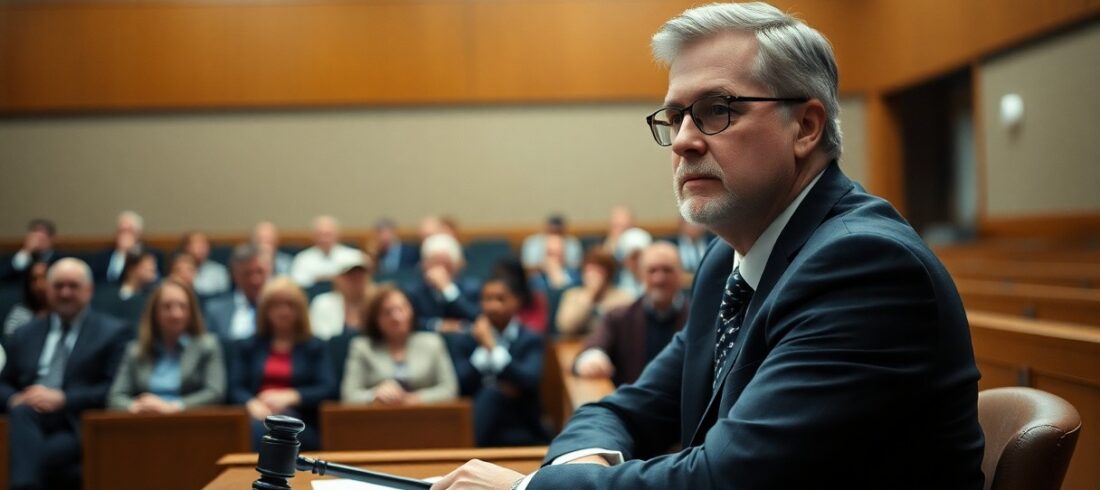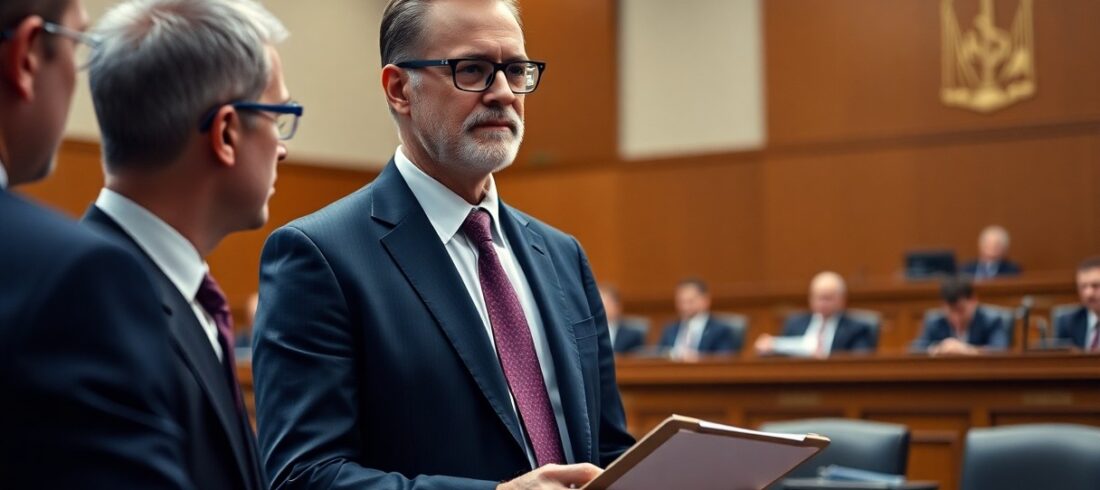Most individuals underestimate the importance of thorough preparation for expert witness testimony. As an expert, you have the responsibility to provide clear and accurate information that can greatly influence the outcome of a case. In this guide, you will learn vital strategies to help you effectively present your expertise, communicate with confidence, and align your testimony with the legal context. By following these steps, you can ensure you are well-prepared to fulfill your role and contribute valuable insights in a courtroom setting.
Understanding the Role of an Expert Witness
To effectively prepare for your role in a testimony, it’s crucial to grasp the function you serve as an expert witness. This understanding lays the groundwork for your testimony and how you convey your knowledge in a legal context.
Definition of an Expert Witness
There’s a specific definition that separates an expert witness from other types of witnesses in court. An expert witness is a professional who possesses specialized knowledge, skills, or experience in a particular field, allowing them to provide informed opinions in legal disputes.
Importance of Expert Testimony in Legal Settings
You should recognize that expert testimony holds significant weight in legal settings. It helps clarify complex issues for judges and juries, enabling them to make informed decisions based on facts rather than assumptions.
Legal cases often involve intricate technicalities and specialized knowledge that laypeople may find challenging to understand. By presenting expert testimony, you bridge the gap between complex subject matter and the court, guiding decision-makers through the nuances of the case. Your expertise lends credibility to the proceedings, influencing outcomes and contributing to the pursuit of justice.
Preparing for Expert Testimony
Clearly, preparing for expert testimony requires thorough groundwork to ensure your effectiveness and reliability as a witness. This preparation phase encompasses several significant aspects that you must navigate carefully.
Researching the Subject Matter
Matter of fact, you should conduct in-depth research on the subject matter related to your expertise. This involves reviewing recent studies, best practices, and industry standards to ensure you are well-versed in the specifics that may arise during your testimony. Comprehensive knowledge enables you to answer questions confidently and address opposing viewpoints effectively.
Reviewing Relevant Legal Standards
If you are to provide compelling testimony, you need to familiarize yourself with the relevant legal standards that apply to your case. This understanding will allow you to articulate your expert opinion in a manner that aligns with court expectations.
Legal principles may vary based on jurisdiction and the specific area of law involved, so it’s crucial to understand how these standards interact with your testimony. Being knowledgeable about legal standards not only informs your statements but also helps you frame your conclusions within the context of the law, thus enhancing your credibility with the judge and jury.
Understanding the Case Background
Little attention to the case background can derail your effectiveness as an expert witness. You need to know the specifics of the case to provide relevant insights and to understand how your expertise fits into the larger context of the proceedings.
This understanding enables you to tailor your testimony to the particulars of the case, addressing key issues that are vital to the outcome. By being thoroughly informed about the events, parties involved, and the legal questions at stake, you can better prepare to support your opinions with factual backing and relevance to the case narrative.
Developing Effective Testimony Skills
Not every expert witness is born with the skills necessary to testify effectively. Developing these abilities is vital to ensure that your testimony is clear, persuasive, and impactful. By focusing on various aspects of effective communication, you can enhance your proficiency in delivering expert witness testimony.
Communicating Complex Ideas Clearly
Assuming your area of expertise is filled with complex terminologies and concepts, it’s your responsibility to simplify these ideas for a lay audience. You should focus on translating technical jargon into everyday language, making your insights accessible and relatable without sacrificing accuracy.
Practicing with Mock Testimonies
With the practice of mock testimonies, you can simulate real courtroom scenarios to hone your delivery. Engaging with colleagues or mentors in these mock settings allows you to explore various questioning techniques, refine your answers, and become comfortable with the overall testimony process.
Complex mock testimony sessions can help you understand how to respond under pressure. Such rehearsals can reveal areas where you might struggle to articulate your thoughts or where your explanations may lack clarity. By addressing these concerns in a supportive environment, you will improve your confidence and performance during the actual testimony.
Familiarizing with Courtroom Procedures
Ideas about courtroom conduct can significantly impact your testimony. Understanding the formalities, protocols, and etiquette used within the courtroom can enhance your overall performance. Knowing how to present yourself and interact with attorneys, judges, and juries will increase your credibility.
It is necessary to immerse yourself in the atmosphere and procedures of a courtroom. You should consider visiting a courtroom prior to your testimony, observing how the proceedings unfold, and understanding the roles of everyone involved. This familiarity will empower you to engage more effectively during your actual testimony, creating a smoother and more professional experience overall.
Building Credibility as an Expert Witness
Many factors contribute to establishing your credibility as an expert witness. It is imperative to project confidence and authority in your field, as this will enhance the impact of your testimony. Building your reputation involves showcasing your qualifications, remaining objective, and addressing any potential biases that may arise in your evaluations.
Highlighting Qualifications and Experience
Highlighting your qualifications and experience is vital in establishing trust with the court. Begin by clearly outlining your educational background, professional credentials, and relevant experience in your field. This concrete evidence of your expertise helps to reassure jurors and attorneys of your competence and enhances the weight of your testimony.
Maintaining Objectivity in Testimony
Objectivity is imperative for ensuring the integrity of your testimony. As an expert, you should strive to present facts and analysis without personal bias influencing your conclusions. This impartiality not only strengthens your credibility but also helps to foster trust with both legal teams and the jury.
Expert witnesses must focus on the data and evidence available, ensuring that their opinions stem from factual analysis rather than personal beliefs or experiences. This commitment to objectivity will emphasize your role as a neutral authority in the case, further solidifying your credibility in a legal setting.
Addressing Potential Bias
Testimony can sometimes be perceived as biased, potentially undermining your credibility. You should proactively address any perceived conflicts of interest or affiliations that could be seen as influencing your perspective. Transparency in this regard fosters trust and shows that your analysis is based on sound reasoning rather than personal motivations.
Plus, acknowledging potential bias openly and discussing how you strive to remain impartial can bolster your standing as an expert. Your willingness to confront these issues head-on demonstrates integrity and reinforces that your input is based on facts rather than external influences, thus enhancing your credibility in the eyes of the court.

Anticipating Cross-Examination
Unlike direct examination, cross-examination can present unique challenges. As an expert witness, your ability to anticipate the tactics of the opposing counsel can create a distinct advantage during your testimony.
Common Tactics Used by Opposing Counsel
There’s a range of strategies that opposing counsel may utilize to undermine your credibility. They might focus on detailed questions to expose inconsistencies, employ aggressive questioning to provoke a response, or attempt to question your qualifications and expertise.
Preparing Responses to Challenging Questions
Even with strategies in place, you must prepare responses to potential challenging questions that may arise during cross-examination. Your goal should be to provide concise, well-reasoned answers that reinforce your position and expertise.
Opposing counsel will likely attempt to catch you off guard with unexpected questions or attempt to lead you into providing answers that can be misinterpreted. To combat this, practice delivering clear responses and anticipate various angles of questioning. Review your reports and data meticulously, ensuring you can articulate your conclusions confidently and accurately, prompting the opposing counsel to respect your testimony.
Staying Calm Under Pressure
There’s no doubt that cross-examination can be stressful, but maintaining your composure is necessary. By staying calm and focused, you demonstrate your professionalism and command of the subject matter.
Pressure can arise from rapid-fire questioning or tactics designed to fluster you. To manage this effectively, engage in relaxation techniques before your testimony, such as deep breathing exercises or visualizations. Additionally, remind yourself that it is okay to take a moment to gather your thoughts before answering a question. This approach not only helps maintain your poise but also signals confidence to the court and the opposing counsel.
Tips for Testifying in Court
Keep your demeanor professional and composed during your court testimony. Your behavior can influence the perception of your credibility, so adhere to the following guidelines:
- Arrive early to familiarize yourself with the environment.
- Maintain eye contact with the judge and jury.
- Speak clearly and at a moderate pace.
- Stay calm, even under pressure or challenging questions.
- Stick to factual statements and avoid speculation.
This is your opportunity to present your expertise convincingly.
Dressing Professionally and Appropriately
To ensure you make a positive first impression, dress in professional attire that reflects the seriousness of the court proceedings. Aim for conservative clothing that conveys authority, such as a tailored suit or business attire. Pay attention to grooming and overall appearance, as these details can affect how your testimony is perceived.
Using Visual Aids Effectively
On the other hand, utilizing visual aids can greatly enhance your explanations and provide clarity to complex information. Charts, graphs, or diagrams that succinctly represent data help the judge and jury understand your points effortlessly. Make sure your visual aids are simple, relevant, and easy to interpret to maintain focus on your testimony.
Professionally employed visual aids can underscore your key messages, making them more memorable for those in the courtroom. Ensure that they are polished and formatted correctly, and rehearse explaining them clearly. By using visual aids, you can support your conclusions and provide a comprehensive understanding of the subject matter.
Listening Carefully to Questions
With the challenges of court proceedings, it’s vital to listen attentively to the questions posed by attorneys or the judge. Understanding the query before responding will ensure that your answers are relevant and accurate, which reinforces your credibility as an expert witness.
Listening intently is not just about hearing words; it involves grasping the intent behind the question. Take a moment to formulate your answer before responding. If you find a question unclear, it’s acceptable to ask for clarification. This practice demonstrates your commitment to providing thorough and precise information, which is important for effective testimony.
Conclusion
Presently, to prepare for your expert witness testimony, you should thoroughly review the case materials and relevant legal standards. Familiarize yourself with the courtroom environment and practice articulating your findings clearly and confidently. Engaging in mock testimonies can help refine your responses to potential cross-examination questions. Moreover, ensuring you understand the underlying facts of the case and the implications of your testimony will strengthen your position. By adopting these strategies, you can enhance your effectiveness as an expert witness in court.
FAQ
Q: What steps should I take to prepare for my expert witness testimony?
A: To prepare for your expert witness testimony, start by reviewing all relevant documents and materials related to the case, including reports, findings, and any prior correspondence. Familiarize yourself with the case background and key arguments from both sides. Next, outline the main points you want to convey during your testimony and practice articulating them clearly. It can be beneficial to take part in a mock testimony session where you can simulate the questioning process. Lastly, check in with legal counsel to clarify any uncertainties and ensure alignment with the overall strategy.
Q: How can I handle difficult questions during my testimony?
A: When faced with difficult questions during your testimony, it’s important to remain composed and take a moment to think before responding. If a question is unclear or complex, don’t hesitate to ask for clarification or to repeat the question back. Provide answers that are straight to the point and based on factual information, avoiding speculation or unfounded opinions. If you don’t know the answer to a question, it is acceptable to admit it rather than trying to guess. Maintaining professionalism and calm will help strengthen your credibility.
Q: What should I wear to court for my testimony?
A: Dressing appropriately for court is imperative to convey professionalism and respect for the legal process. Aim for business formal attire, such as a suit or formal dress, depending on your personal style and comfort. Choose neutral colors to avoid attracting unnecessary attention and ensure that your clothing is clean and free of distractions. Also, make sure your attire aligns with the court’s atmosphere to enhance the seriousness of the testimony you will provide.
Q: How can I build credibility as an expert witness?
A: Building credibility as an expert witness involves several factors. First, you should emphasize your qualifications by highlighting your education, experience, and any relevant certifications or accolades in your field. It is also beneficial to present clear, logical, and well-supported opinions during your testimony. Engage with the court respectfully and demonstrate your knowledge confidently without arrogance. Providing well-structured evidence and a firm basis for your conclusions will strengthen your position and enhance your credibility.
Q: What should I do if I am called to testify in a case that is outside my expertise?
A: If you are called to testify on a case that does not align with your area of expertise, it is imperative to communicate this clearly with the legal team. Discuss your qualifications and the subjects you are proficient in. If necessary, suggest other experts who may be better suited for the case. If you must proceed with the testimony, ensure you limit your comments to your area of expertise and do not provide opinions or insights on matters that are beyond your knowledge. This approach helps maintain the integrity of your testimony and assures the court of your professional boundaries.





